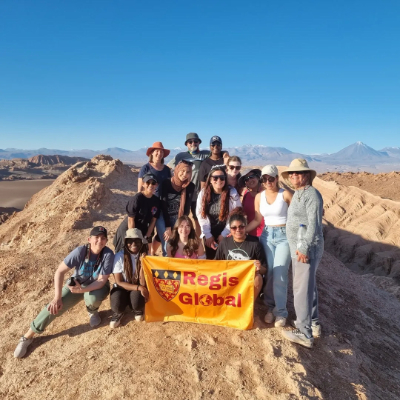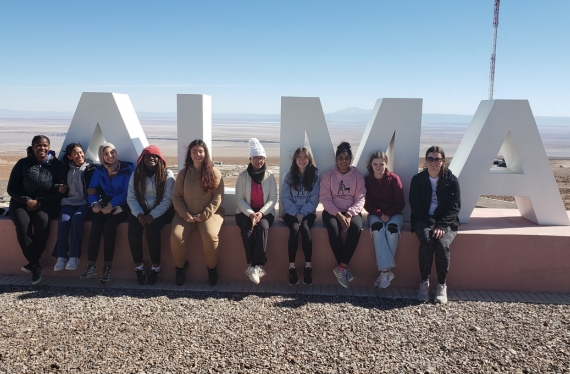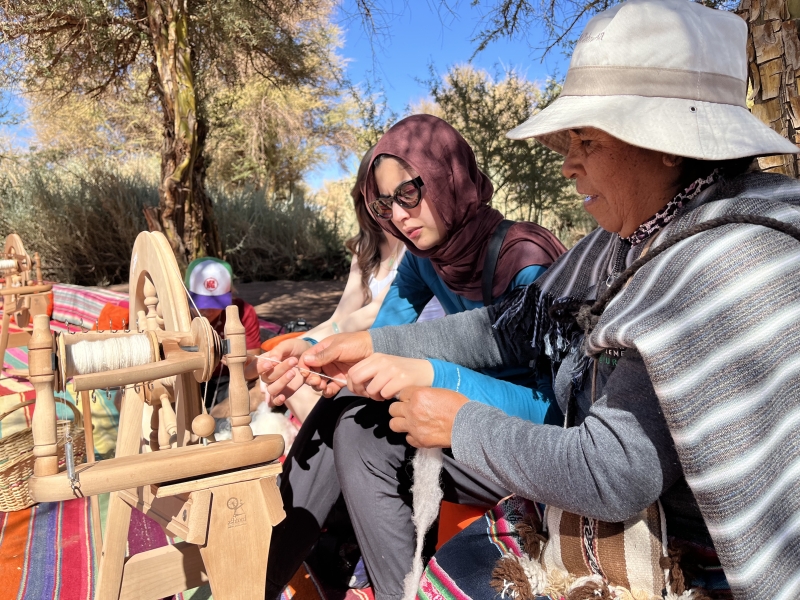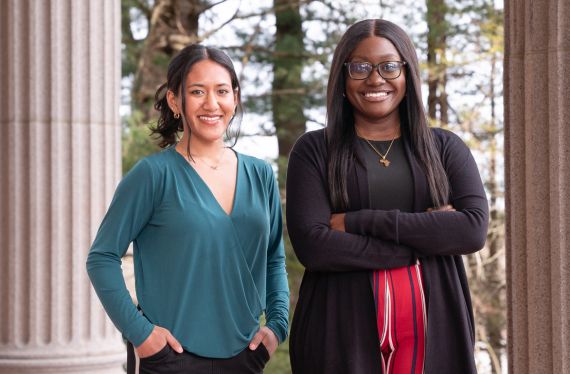
At the end of the spring 2023 semester, 11 Regis students participated in a 10-day, faculty-led immersion experience in Chile where they learned about the country's culture, history, socioeconomic conditions, and public health infrastructure. Part of a global public health course offered at Regis, students examined how culture and business affect health and environmental issues in the isolated northern desert region of San Pedro de Atacama. They also explored the economic and scientific activities carried out in the area, including mining and astronomy.
“The students' immersion in the local community allowed them to witness firsthand how the people who live in the region have adapted to the desert climate in various ways,” said Professor Manuel Cifuentes, MD, MPH, ScD, who led the trip with Assistant Professor Jocelyn Mullins, DVM, MPH, PhD and Director of the Center for Global Connections Megan Gibbons, PhD. “With the guidance of faculty from the Universidad Católica del Norte, experts from the Museum of Antofagasta, and individuals from the local communities, Regis students gained a deeper appreciation for the unique culture and environment of Chile’s Atacama Desert region.”
The group began their visit to Chile in Santiago. From there, they traveled north to Antofagasta, a region that has attracted thousands of immigrants from other Latin American countries due to the economic prosperity of the copper mining industry. In addition to visiting some of the migrant settlements, students visited social organizations that work with at-risk populations and advocate for universal access to health services.

While in Antofagasta, students met with professors and students from the Universidad Católica del Norte (UCN), attending lectures and site visits to learn more about the social determinants of health associated with life in a desert environment. A highlight of the program was visiting the Atacama Large Millimeter/submillimeter Array (ALMA), the largest astronomical project in the world, featuring a revolutionary single telescope located at approximately 16,400 feet altitude. In 2022, the ALMA was part of an international team of astronomers that revealed the first image of the supermassive black hole at the center of the Milky Way galaxy.
"Our journey to Chile will forever hold a special place in my heart, as it imparted to me far more than just a love for travel,” said Swechha Maharjan ‘24. “It's surprising how easily we can overlook the experience of exploring a new destination. Yet even the simple moments during our time in Chile were nothing short of extraordinary. Whether listening to the life story of a human trafficking survivor or being inspired by the work of the volunteers in the Barrio Transitorio Luz Divina who help house, educate, and support the children and families who live in Antofagasta's migrant camp, La Chimba, every encounter I had in Chile inspired me. I have also made lifelong friends from UCN to whom I unfold my genuine appreciation.”

A core component of the Regis mission is to empower students to challenge themselves academically, to serve, and to lead throughout the world. The program in Chile is just one of many global experiences available to Regis students. The university’s Center for Global Connections offers flexible education abroad options with experiences that range in length from one week to an entire semester and encompass traditional study, internships, research, and service immersion. Learn more about global learning opportunities at Regis here.
The experience in Chile was made possible thanks in part to a generous donation from Leslie Mandel, PhD, MA, MSM, professor of public health and health administration and program director, public health (undergraduate) at Regis.


